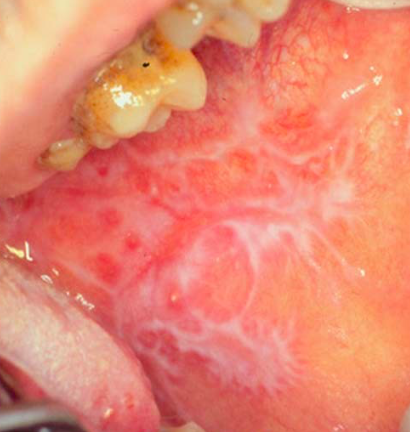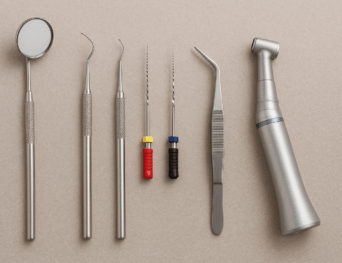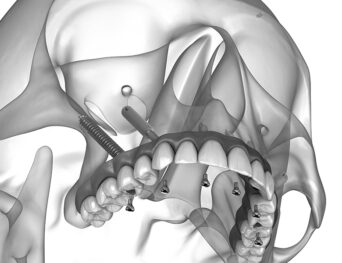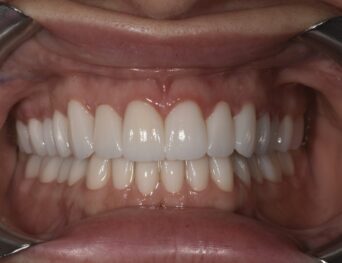Lichen Planus Oral and Lichenoid Reactions
Lichen planus
Lichen Planus is a mucocutaneous disease of chronic course and of unknown etiology that can affect the skin and mucous membranes. Although it is very common to find patients with lesions exclusively in the oral cavity, sometimes Lichen Planus affects other areas of the skin such as the genitals, and nails or other mucous membranes such as the esophagus or conjunctival and genital.
Although the etiology is unknown, it is clear that phenomena of cellular hypersensitivity to certain antigens are involved. These antigens trigger a cellular immune response through the action of T lymphocytes, which by cytotoxicity processes damage and destroy the basement membrane cells.
We distinguish three clinical forms of Oral Lichen Planus (LPO):
1.- The Reticular LPO
It usually occurs in the jugular mucosa, usually symmetrically, and with white stretch marks that produce little or no discomfort.
2.- The Atrophic LPO
It is common in yugal mucous, tongue and gums and causes discomfort. It can present as a scaling gingivitis.
3.- The Erosive LPO
It causes pain and can ulcerate the mucosa.
In addition there are some lesions similar both clinically and histologically to the LPO that are grouped under the name of Lichenoid Reactions.
1.- Oral Lichenoid Lesions by Contact
They are the consequence of allergic reactions by contact, responding to delayed hypersensitivity reactions.
2.- Lichenoid lesions by drugs
Various drugs can cause skin or mucous lesions of this type.
3.- Lichenoid lesions in the Graft Reaction against the Guest.
They are injuries similar to those of the LPO within the framework of this entity.
The relationship of Lichen Planus with hepatitis C has been described.
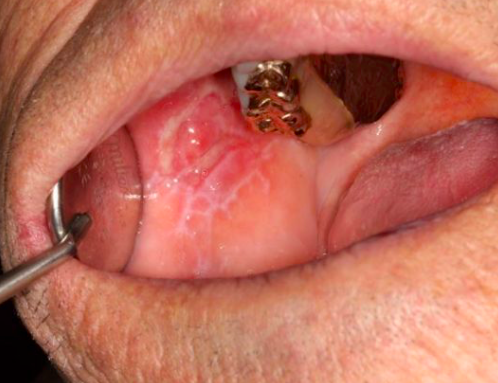
Dr. Cristina Balboa, is a specialist in Oral Medicine at the Complutense University of Madrid since 2006, with one of the few graduate degrees accredited by the Spanish Society of Oral Medicine. Do not hesitate to contact us.
Lichen Planus is considered a state – premalignant mucosal injury by the World Health Organization, and although there is currently no consensus on this, its follow-up is recommended, at least once a year.
The diagnosis of the LPO is clinical and pathological and at the Dávalos and Balboa Dental Clinic we work in collaboration with prestigious laboratories in Murcia and Madrid for your best diagnosis.



